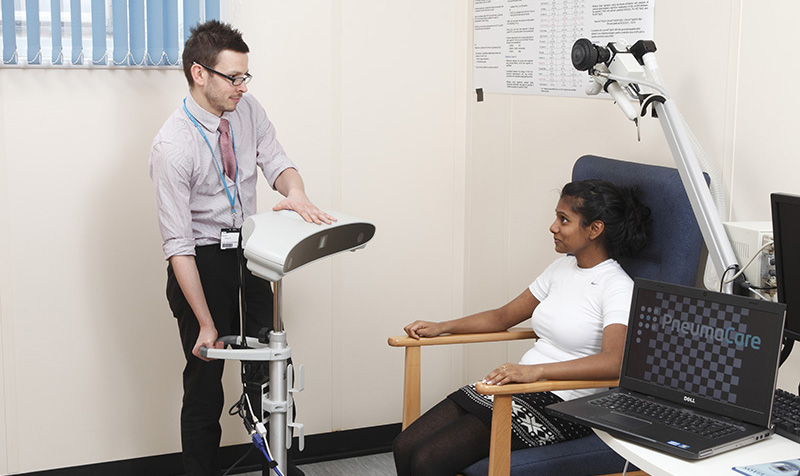PneumaCare, founded in 2008, has developed a non-invasive technology for monitoring lung function, known as PneumaScan. PneumaScan works by utilising video motion capture technology to produce accurate three-dimensional moving models of a patients’ breathing.
Lung disease affects one in seven people in the UK, resulting in over 24 million doctor visits each year, at an annual cost of £500 million to primary care providers and £6.6 billion to the broader UK economy.
Over 300,000 specialist lung function tests are carried out annually, and yet one in three patients is unable to use a spirometer, the existing technology used to monitor lung function. For instance, small children have problems blowing into standard spirometers because when they feel resistance, they stop blowing, thereby preventing an accurate reading of lung function, while some older patients can be harmed by the physical effort required by current methods.
As the device is non-contact, it can be used on very young, elderly or unconscious patients, none of whom is able to use a spirometer. Additionally, PneumaScan is useful in post-thoracic surgery assessment, as it allows analysis of breathing after lung surgery.
PneumaScan has been developed by PneumaCare in partnership with the Department of Engineering at the University of Cambridge, Addenbrooke’s Hospital and Cambridge-based design house Plextek Limited.
PneumaScan is currently in use at five hospitals in the UK, including Sheffield, Papworth and Addenbrooke’s. PneumaCare is expanding into international markets this year, and recently signed a deal with one of the largest hospitals in Asia, Hospital Kuala Lumpur.
The Business Excellence Awards this year – the 19th – were hosted by Olympic javelin thrower Steve Backley. The awards formed part of the Cambridge Awards Week for business.











